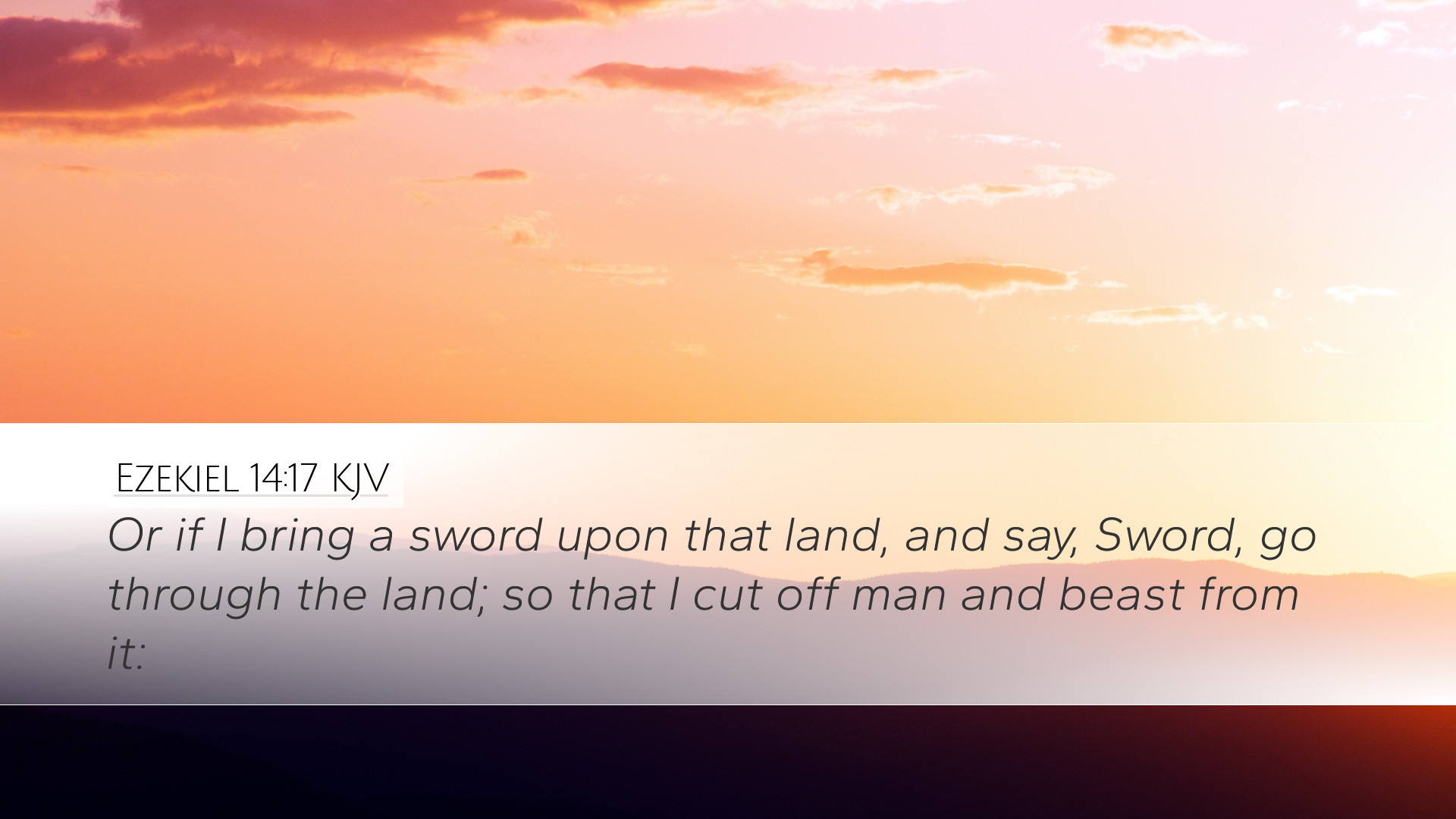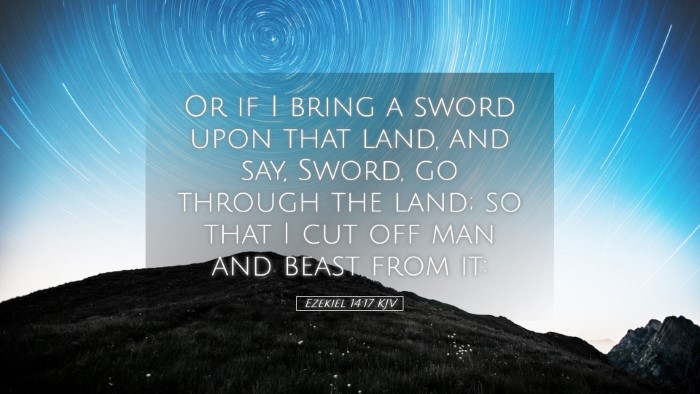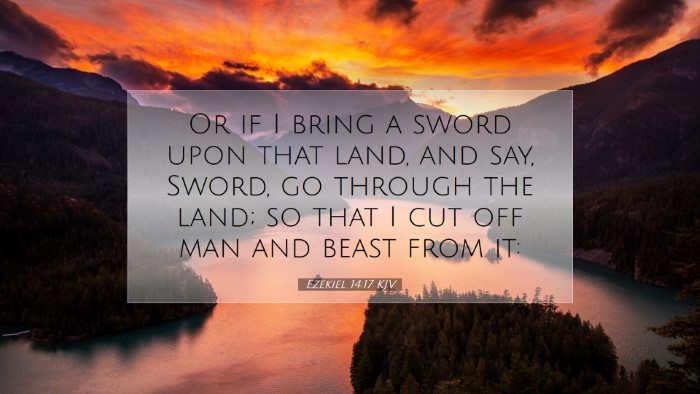Ezekiel 14:17 Commentary
Verse Context: Ezekiel 14:17 states, “Or if I bring a sword upon that land, and say, Sword, go through the land; so that I cut off man and beast from it.” This verse is part of a larger discourse where God, through the prophet Ezekiel, expresses judgments that will come upon a nation due to its idolatry and disobedience.
Overview of the Passage
This verse uses metaphorical language to convey God's judgment symbolized by a "sword." The imagery of a sword represents destruction and divine wrath against those who continue in unrepentant sin.
Theological Implications
The implications of this verse for understanding judgment are significant:
- Divine Sovereignty: This passage clearly illustrates God's sovereignty over nations and His authority to dispense judgment as He sees fit.
- Judgment and Hope: Even in judgment, God's call for repentance and eventual restoration underlines His desire for relationship with humanity.
- Nation's Responsibility: Nations are held accountable for their actions, and the people within them share a collective responsibility for turning away from God.
Insights from Public Domain Commentaries
Matthew Henry’s Commentary
Matthew Henry emphasizes that the "sword" signifies not just literal warfare, but also the metaphorical sword of the Spirit, which cuts through the heart of rebellion. He connects this judgment to the broader theme of God's displeasure with sin. Henry notes that persistent disobedience can lead to severe consequences, thereby reinforcing the necessity of repentance and righteousness among God's people.
Albert Barnes’ Notes on the Bible
Albert Barnes focuses on the imagery of the sword as a divine instrument of judgment. He remarks on the importance of recognizing that God's judgment is not arbitrary; rather it comes as a result of the nation’s actions. Barnes articulates that the cutting off of "man and beast" signifies complete desolation and loss, which serves as a warning to all who forsake the covenant relationship with God.
Adam Clarke’s Commentary
Adam Clarke elaborates on the sociological and prophetic implications of the passage. He draws attention to the historical context, emphasizing how Ezekiel's warnings might relate to the forthcoming Babylonian exile. Clarke intriguingly points out that such calamity serves as spiritual admonition; he urges readers to recognize the severity of divine discipline and the need for collective national repentance.
Application and Reflection
This verse raises critical questions for modern readers:
- What warnings are we ignoring? Like ancient Israel, contemporary societies may dismiss divine warnings at their peril.
- How do we respond to judgment? Are we more like the faithful remnant that turns back to God, or are we hardened like those who persisted in rebellion?
- What does national righteousness look like today? As the church, what role do we play in calling nations to accountability before God?
Conclusion
Ezekiel 14:17 serves as a powerful reminder of God's active role in human history and His displeasure with sin. By reflecting on this verse and the wisdom of historical commentators, we are prompted to consider our own lives and societies in light of God’s justice and grace. The quest for righteousness must begin within the heart, fostering a collective return to authentic faith and obedience.


